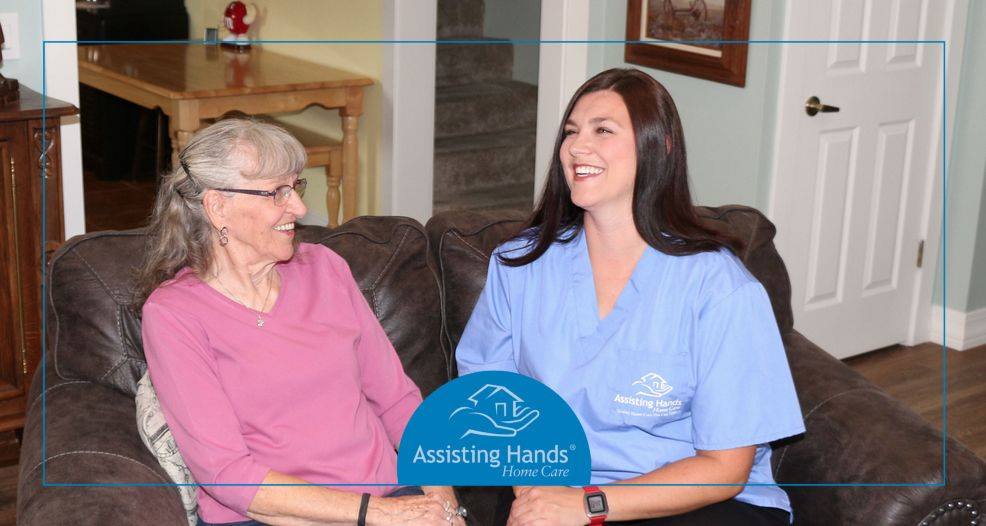
Talking incessantly can result from any number of causes, from mental health conditions to cognitive impairment. Seniors often repeat stories or jokes and caregivers usually humor them. But when older adults talk excessively, it may be due to Alzheimer’s disease or another form of dementia.
Outgoing individuals may continue their chattiness well into older age. They may love to tell the same amusing stories over and over as a way of entertaining themselves and others. If the senior is healthy and the excessive talking is infrequent, most caregivers simply accept it and listen to them.
Is excessive talking a sign of dementia?
However, verbal repetition can be a symptom of mild dementia. In the early stages of the disease, the dementia patient may ask questions repetitively or repeat the same phrases. Stopping dementia symptoms is difficult if not impossible. But caregivers can handle the repetition effectively.
To be sure that the excessive talking is due to dementia, it is first important that caregivers schedule their aging loved one for an appointment with a neurologist. This medical professional will perform an evaluation to detect symptoms of dementia. Appropriate treatments can then follow.
How does the dementia brain cause non-stop chatter?
Neurological deterioration is associated with dementia symptoms, like excessive chatting. The dementia patient’s brain loses the ability to control verbalizing what goes on in their heads. As a result, the senior automatically says what she is thinking without noticing that it can be irritating to loved ones.
New information is difficult to recall for seniors who have recently been diagnosed with dementia. Their short-term memory is failing, causing them to repeat questions or statements. On some days, their memory may function reliably, while on other days their brain cannot recall information.
How do caregivers manage excessive talking?

It’s helpful for caregivers to learn as much as possible about dementia so that they can identify symptoms, such as excessive talking. Redirection is a helpful strategy to handle chattiness. Simply distract the senior with a new activity, like folding laundry or separating buttons.
Another helpful strategy for handling excessive talking is to avoid contradicting them. For example, the senior who has just visited the doctor may ask when she will see the physician. Constantly challenging their reality only exacerbates their anxiety; they cannot trust themselves and then ask more questions.
Do not ignore the repetitive questions a dementia patient asks. Especially when trapped in a car with them, it can be exhausting to hear the string of questions about where they’re going. Redirection helps here, too, although options may be limited inside a car.
Play the senior’s favorite music as a way to distract them from repeating themselves. Music, according to dementia experts, is a skill that dementia patients retain. Older tunes are likely to be familiar to the senior and can inspire them to sing along.
Dementia patients who repeat stories use an important communication technique. They pick old stories that they know they can remember as a way to engage with loved ones. Seniors with dementia don’t want to be “talked at” all the time; rather, they want dialogues with other people.
For more information, visit What are the Duties of a Dementia Caregiver?
Why do dementia patients talk excessively?

Communication skills decline as dementia progresses. But even the senior’s flawed approaches to connecting verbally with friends and family are essential for maintaining valuable relationships. Plus, a dementia patient’s attempts at social interaction keep them from feeling lonely and isolated.
It’s important for dementia patients to still feel valued by their loved ones. By asking them to elaborate on the stories or questions they’ve repeated, the family members show, in a very supportive way, that they want to talk to them.
Over time, as dementia advances and further destroys the brain and its communication abilities, the older adult loses their ability to repeat stories. Families are encouraged to document the dementia patient’s stories, even if they’ve heard them dozens of times.
Recording an aging loved one’s stories is helpful during the caregiving journey. As the dementia patient gradually loses themselves to their disease, families who have recorded their stories have another way to connect. Plus, other generations who listen to the recordings get to know the senior.
The excessive chatter will continue, and families can do little to stop the symptoms. Excessive speech can worsen in the evenings due to a phenomenon known as Sundown Syndrome (when dementia symptoms increase around sunset). But by using the abovementioned tactics, caregivers can manage graciously.
How does in-home memory care benefit seniors?
Families may also turn to memory caregivers to benefit their aging loved one. Experienced dementia caregivers are trained to identify dementia symptoms, including excessive chatter, and respond with compassion. Professional caregivers serve as companions to whom seniors can talk and connect.
When the senior in your life is diagnosed with Alzheimer’s disease or another form of dementia, plan for memory care from Assisting Hands Home Care. Our professional caregivers provide compassionate hands-on care to seniors in the comfort and familiarity of home.
Responsibilities our dementia caregivers undertake include meal preparation, grocery shopping, light housekeeping, and medication reminders. We discreetly assist aging care recipients with hygiene tasks, like bathing, grooming, and toileting. Transportation is provided to doctors’ appointments and to areas within the community.
Assisting Hands Home Care providers keep seniors safe at home. If the older adult wanders, we accompany them, ensuring they do not leave the residence. We respectfully handle incontinence issues, which are common in dementia patients. Agitation is effectively managed with distractions.
Dementia patients should never be left at home or locked inside. The reliable supervision our memory caregivers provide ensures their safety and comfort. We’re also great companions who initiate conversations, stimulate their minds with simple games, and take them on safe outings.
Seniors with dementia should receive specialized care. Assisting Hands Home Care provides the skilled non-medical support they need to age gracefully in their Batavia, Illinois, home. Schedule a free in-home consult with us and we’ll develop a customized care plan. Call today at (630) 948-8193 for the best in memory care.
